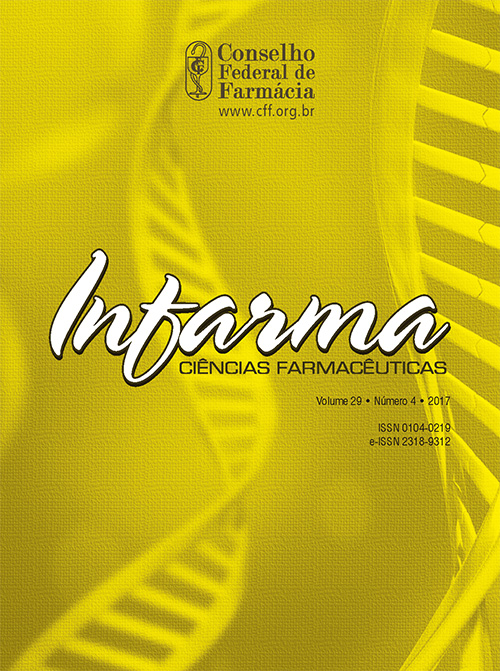ETHNOBOTANICAL SURVEY OF PLANTS WITH TOXIC ACTIVE CONSTITUENTS, GROWN IN THE MUNICIPALITY OF CUITÉ, PARAÍBA, BRAZIL
DOI:
https://doi.org/10.14450/2318-9312.v29.e4.a2017.pp339-348Palavras-chave:
plants, public health, poisoning, ethnobotanyResumo
Incidents involving plants have been a major problem for public health over the years and represent the fourth leading cause of poisoning in Brazil, leading to death many people, especially children. This study aimed to carry out an ethnobotanical survey of plants with toxic active constituents, grown in the municipality of Cuité, Paraíba, correlating
the popular and scientific knowledge. This study conducted an exploratory and descriptive field research by applying semi-structured questionnaires to city dwellers who maintained frequent contact with plants. The identification of 19 toxic species and 18 potentially poisonous species was possible. Prevalent plants in homes were ornamental. Most
respondents were senior women who carried out this practice over ten years, and this interest in cultivation had come through relatives. The survey showed that most interviewees unaware the toxic potential of cited plants, which indicates the need to carry out educational and preventive work among the population.
Downloads
Publicado
Como Citar
Edição
Seção
Licença
Autores que publicam nesta revista concordam com os seguintes termos:- Autores mantém os direitos autorais e concedem à revista o direito de primeira publicação, com o trabalho simultaneamente licenciado sob a Licença Creative Commons by NC ND que permite o compartilhamento do trabalho com reconhecimento da autoria e publicação inicial nesta revista.
- Autores têm autorização para assumir contratos adicionais separadamente, para distribuição não-exclusiva da versão do trabalho publicada nesta revista (ex.: publicar em repositório institucional ou como capítulo de livro), com reconhecimento de autoria e publicação inicial nesta revista.
- Autores têm permissão e são estimulados a publicar e distribuir seu trabalho online (ex.: em repositórios institucionais ou na sua página pessoal) a qualquer ponto antes ou durante o processo editorial, já que isso pode gerar alterações produtivas, bem como aumentar o impacto e a citação do trabalho publicado (Veja O Efeito do Acesso Livre).


